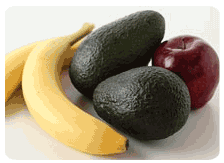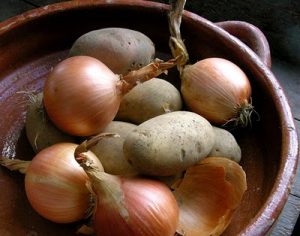Are You Using Your Fridge Wrong
Many people just get home and throw all their produce in the fridge only to find things going slimy and brown before they should. Everyone knows that fridges work to preserve food, so might as well just fill it up with everything, right? Nope!
Improper food storage leads to your hard earned dollars ending up in the bin instead of your belly. In America, a report from the National Resources Defense Council estimates that the average person throws out about 10kg of food per month. That amounts to almost $2,275 a year per family of four – money that could go to savings or a nice little holiday.
Your fridge produces cool air which stops food from decaying by ensuring that bacteria doesn’t have the proper environment to reproduce. In general, organic matter rots quicker in a warmer environment.
However, certain fresh foods lose their taste, texture and are don’t ripen properly in the refrigerator. So some fruits and vegetables that you might think need to be refrigerated actually do better left on the counter for a few days first. Also some foods don’t play nicely with others and should be kept seperate.
Some foods emit a natural ethylene gas which causes them to ripen. These foods include stonefruit like nectarines and peaches, pears, bananas, apples, kiwis, rockmelons, pawpaws, avocados and tomatoes. These foods can speed up rot in ethylene sensitive foods like asparagus, broccoli, carrots, cucumbers, eggplants, green beans, lettuce and other greens, potatoes, squash, watermelons. So its always best to keep these separate in the fridge.
Ripen These First Before Refrigerating
Nectarines, peaches, pears, lady finger bananas, apples, kiwis, mangoes, pineapples, rockmelons, pawpaws, and avocados should all be left on the bench, out of direct sunlight, until they smell and/or feel ripe, then moved to the fridge. To speed up ripening, store these items in the same bowl or bag to concentrate the ethylene gas exposure. Store apart to slow ripening. While tomatoes are best left out of the fridge as the cool affects their flavour, they can be refrigerated once ripe.

Extra tip: For guacamole, put a little water on top before storing in the fridge to keep it from browning.
Foods To Refrigerate Immediately
Other types of produce need to chill out at once. Most berries, cherries, figs, plums, corn, grapes, root vegetables (carrots, radishes, turnips, parsnips, beetroot), greens (lettuces, leafy greens, brussels sprouts, broccoli, green beans, spinach, and fresh herbs) should be put away in perforated bags or containers that allow a only a little air to circulate. For asparagus, trim the base stalks and store upright in a container with water to keep fresh for longer. Most people think lemons are best stored on the counter, but pro chefs vote that they go in the fridge. Even without a plastic bag, refrigerated lemons will last up to four weeks.

Don’t Refrigerate These Foods
Cavendish bananas, potatoes, onion and garlic should always be kept out of the fridge. Unlike lady fingers, cavendish bananas go brown in the fridge. Also breaking up hands of bananas on the bench will stop them ripening as quickly. Potatoes should always be left out of the fridge, since the cool temperatures transform the containing starch into sugar, adversely affecting flavour. Dont prewash your spuds, leave the dirt on and store away from other fresh foods in a cool, dark place, as they also give off moisture and gases that can cause other foods to rot. Keep your onions and garlic on the bench in a mesh bag, the circulating air keeps them fresh. Citrus can always be left on bench but can be refrigerated to extend life.

How to Make Them Last Even Longer
Keep your fruits and vegetables whole, don’t pull stems out which might take away a little skin and allow bacteria inside. As soon as the cells on a piece of produce are broken, you invite microorganisms to begin reproducing and speed the process of rot. Also don’t let produce dry out, running some cool water over your greens helps keep them fresh. And give sprouts a rinse every few days.
Chefs recommend wrapping leafy greens and fresh herbs in a microfiber cloth or dishtowel before putting them in a bag and storing them in the fridge. The cloth will absorb excess moisture and give rocket, kale, silverbeet, fresh basil, and rosemary a few more days or even an extra week of life.

Happy fridge happy life !